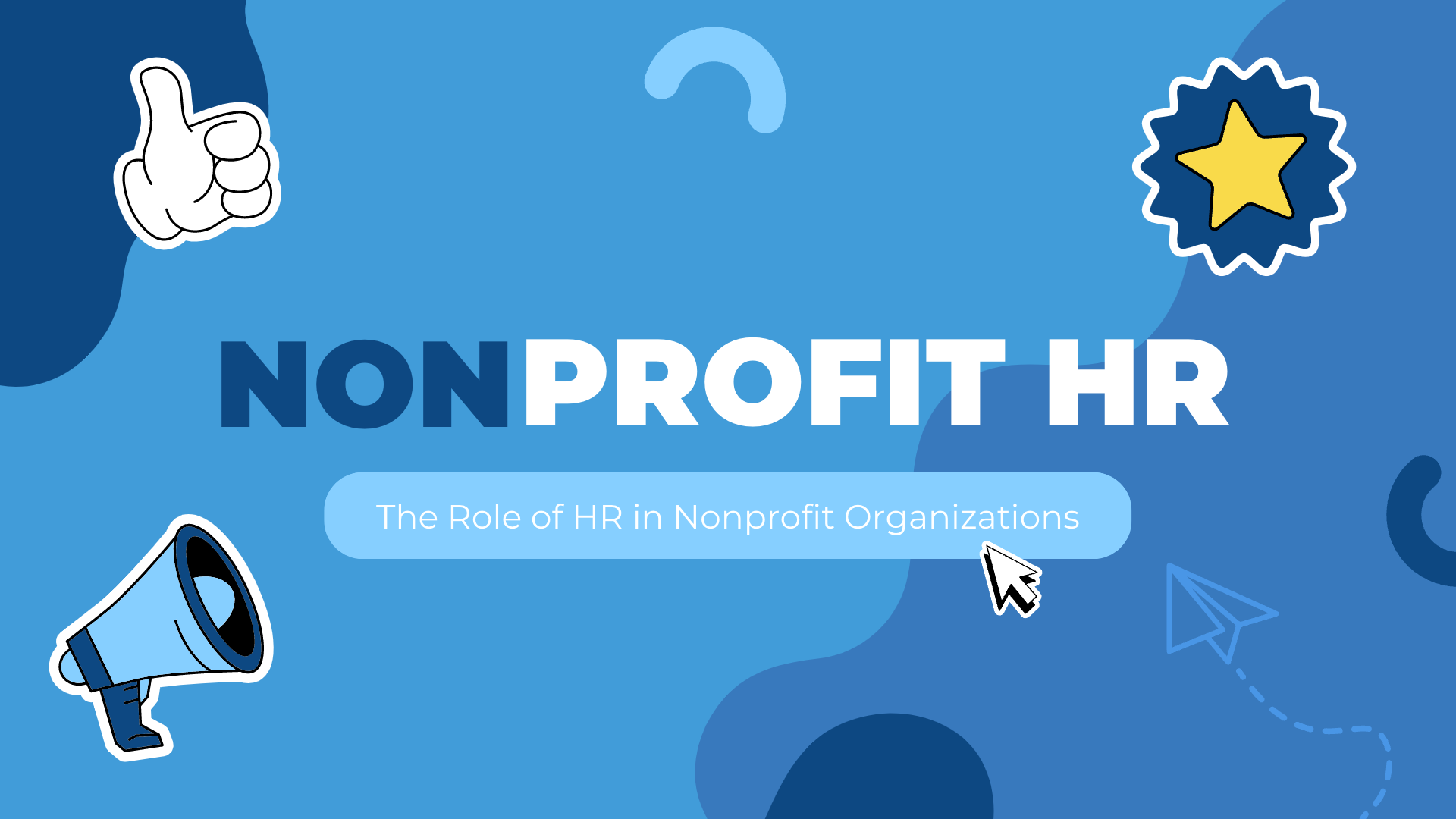Nonprofit HR: The Role of HR in Nonprofit Organizations
If an organization was a family, Human Resources (HR) would be the caring parent who makes sure everyone gets along and fulfills their potential. They may be responsible for handling administrative tasks and keeping policies in check, but they’re so much more than that.
In nonprofit organizations, HR managers bring out the best in both employees and volunteers, and empower them to support those in need.
Today, we’ll take a closer look at the role of HR in nonprofit organizations and what makes these incredible people so indispensable to teams across the globe.
Do Nonprofit Organizations Still Need HR?
Absolutely. In fact, nonprofit organizations are arguably more in need of a strong HR department than most. Here’s why.
Firstly, nonprofits often have limited resources. That means they have to keep employees feeling happy and content on a much smaller budget. Talk about a challenge! Secondly, nonprofits typically involve managing volunteers, who can change often and be from a much wider demographic background. Although cultural diversity in the workplace is always a yes in our books.
To sum up, HR provides crucial structure, empathy, and motivation to support nonprofit organizations in pursuit of their mission.
What Is The Role Of HR In A Nonprofit Organization?
HR roles in nonprofits aren’t too different from HR roles in for-profit businesses. They have plenty of responsibilities, from recruitment and onboarding to system innovation and policy implementation.
Here’s a list of typical tasks an HR manager or representative is responsible for:
- Compensation strategy
- Talent management
- Payroll and taxes
- Recruitment and training
- Volunteer management
- Policy implementation
Implementing policies for nonprofit organizations is one of the cornerstones of this sector’s HR. Good policies build a safe, productive, and legally compliant work environment for nonprofits.
Policies are always changing, but these are the main areas where they are so important:
- Employee conduct
- Anti-harassment and discrimination
- Timekeeping and pay
- Health and Safety
- Adaptive work culture
With strong policies in force, HR can ensure everything is A-OK when it comes to company culture and workplace regulation compliance. Without a strong policy system, nonprofit organizations run the risk of becoming dysfunctional and ineffective. And that’s something that will inevitably impact the organization’s ability to serve its constituents and focus on the mission.
4 Benefits Of Having HR In A Nonprofit Organization
Having a solid HR department (no matter how small) is hugely beneficial for any organization. If you’re wondering how HR benefits nonprofit organizations, look no further because we listed them below:
1. Improved onboarding and retention
In the US alone, there are 1.8 million active nonprofit organizations. That’s a lot of volunteers! Managing, training, and retaining them is far easier when you have an HR department.
HR ensures that volunteers’ basic needs are met while protecting them with fair policies and promoting a healthy work environment. This encourages volunteers and employees to stay committed to long-term projects and keeps the nonprofit wheel turning as it should.
2. Conflict resolution
In any organization, conflict is bound to develop from time to time. Nonprofits are no different. In fact, there can be many reasons for disputes in nonprofit organizations, such as budget spending, ethics, and mission priorities. Nonprofit HR teams are there to help tackle these issues, making conflict much easier and quicker to resolve.
3. Secure top talent
Nonprofit organizations don’t typically have access to a vast amount of resources. This means that any talent used to push the mission forward needs to be nurtured as much as possible.
Strong HR means a more motivated, efficient, and positive work atmosphere, which can be attractive to high-performing volunteers and employees.
4. Productive, positive work atmosphere
Nonprofit organizations thrive on positive workplace culture. Due to limited resources, productivity and consistency can be challenging. But when the HR presence is strong, volunteers and employees alike will find it easier to dig deep and find purpose in the hours they put in.
Best Practices For Developing an HR Department For Your Nonprofit Organization
When it comes to HR in nonprofit organizations, there are some practices that drive maximum project and customer success.
Nonprofit HR solutions can be difficult to implement if you have no idea where to begin. Don’t worry because we’ve scoped out the following best practices to get an idea of where to start.
1. Efficient volunteer management and onboarding
The way in which HR handles volunteer management and onboarding is key to positive outcomes of nonprofit organization missions. Volunteers are the lifeblood of nonprofits, which makes the task of recruiting, training, and retaining them absolutely crucial.
An efficient onboarding process will make sure volunteers are properly informed and up-skilled. This way, they can perform their duties that drive the success of a project. This can be supplemented with multiple team members, adequate training budgets, or a software technology strategy that automates processes.
2. Secure information management
Although often neglected, secure information management is a very important area of any nonprofit organization – and typically, that responsibility falls under HR.
Important documents like grants, volunteer applications, leases, and more are integral to running an essential nonprofit, which is why they should be treated as priorities. These documents should be stored in an organized manner and digitalized for easier, more secure access.
3. Foster a positive, transparent culture
Nonprofit organizations are there to serve a greater purpose, but that doesn’t mean it’s always smooth sailing. Nurturing a culture of total transparency and honesty will help attract new volunteers and employees while creating a more positive workplace culture.
The more volunteers and employees enjoy their experience with a nonprofit organization, the easier it will be to maintain productivity levels and reach targets over time.
Find HR Solutions With Exponent Partners
At Exponent Partners, we understand how difficult it is for nonprofit organizations to keep up with a complex, uncertain world. We also understand that HR is a key piece to keeping nonprofits functional and successful.
As a technology-based consulting firm, our team is dedicated to helping nonprofits and their HR departments drive radically better impact. Our leading implementation specialists and expert strategists specialize in case management solutions and Salesforce CRM implementation. Using our innovative tools, we’ll help you set goals in motion and provide essential structure and direction where necessary.
We’ll walk you through how we can help you develop a strong, sustainable HR department from the ground up. Reach out to us today for a free consultation.

